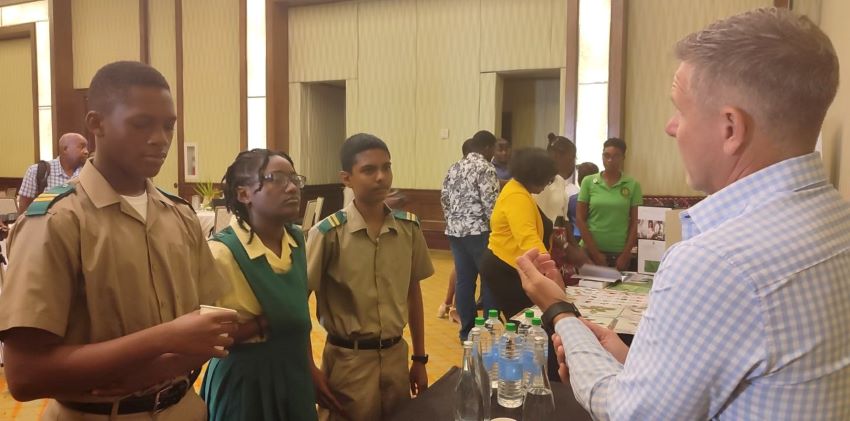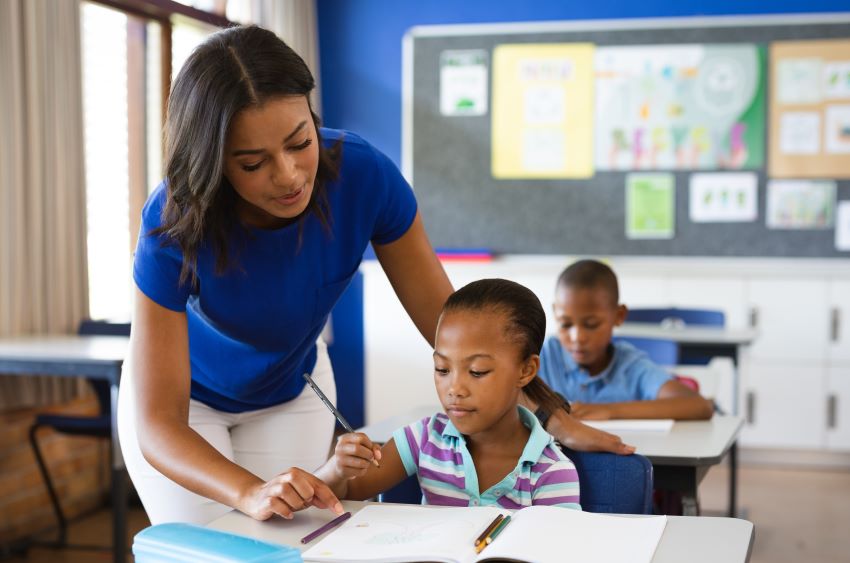The Ministry of Youth, Sports and Community Empowerment celebrated Caribbean Youth Day on Monday by hosting its first-ever Green Tech Expo. It highlighted its commitment to empowering youth to address critical environmental challenges using innovative green technologies.
The Barbados Youth Green Tech Expo, under the theme “Uniting Environmental Sustainability with Innovation and Technology”, was held at the Hilton Barbados Resort, Needham’s Point, St. Michael
It coincided with the end of National Youth Week; an initiative launched by the Ministry in 2015 to highlight the role young people play in national development.
Speaking at the opening of the expo, Director of Youth Affairs, Cleviston Hunte, emphasised the need for collaboration with key youth stakeholders to meet the country’s development goals.
Acknowledging the setbacks young people have faced, Mr. Hunte reiterated Government’s commitment to working with organisations such as the Ashley Lashley Foundation and other vital partners.
“I extend my heartfelt gratitude to the Ashley Lashley Foundation and all our partners and stakeholders who have worked tirelessly with the Ministry to bring this event to fruition.
“To the many practitioners and other actors in the green space whose collaboration with this Ministry plays a critical role in assisting Government to achieve the mandates set out in the Green Energy Policy, let me say that your unwavering support and commitment to green technology and sustainable development are truly commendable. Together, we have demonstrated that when we unite for a common cause, we can achieve remarkable things.”
CARICOM Youth Ambassador for Barbados and coordinator of the event, Ashley Lashley, noted that the day was a “celebration of the power of young minds to drive change and shape a greener future for our region and our country”. She noted that generations to come will have “serious issues” when it comes to climate change, and agriculture, as well as creating and maintaining a sustainable green economy.
“We have the energy, creative and passion to solve them, … so ask yourselves, what’s your role in shaping the future,” the Youth Ambassador stated.
Exhibitors at the Green Tech Expo included the Barbados National Oil Company; Walkers Institute for Regenerative Reserve, Education and Design; Barbados Fisheries Division; the Biocultural Educational Research Programme; Barbados Environmental Sustainability Fund; and Eco Sky Water. (PR/GIS)
Caption: Students of the Parkinson Memorial Secondary School chatting with the founder of Sky Water, Kyle Taylor, at the Barbados Youth Green Tech Expo, Hilton Barbados Resort

 Sports2 weeks ago
Sports2 weeks ago
 Business2 weeks ago
Business2 weeks ago
 Government3 weeks ago
Government3 weeks ago
 International4 weeks ago
International4 weeks ago
 Features4 weeks ago
Features4 weeks ago
 Government3 weeks ago
Government3 weeks ago
 Business2 weeks ago
Business2 weeks ago
 Education4 weeks ago
Education4 weeks ago































